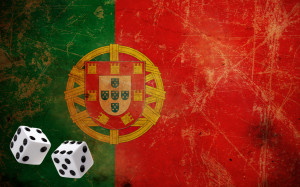 Starting Late June, international gaming operators will be able to apply for a Portuguese iGaming license after a controversial bill which was created to liberalize the country’s gambling market. It was approved by Portugal’s Council of Ministers, and given the blessing of their President, Aníbal António Cavaco Silva. After the sigining and announcement, Portuguese Secretary of State for Tourism, Adolfo Mesquita Nunes, told media:
Starting Late June, international gaming operators will be able to apply for a Portuguese iGaming license after a controversial bill which was created to liberalize the country’s gambling market. It was approved by Portugal’s Council of Ministers, and given the blessing of their President, Aníbal António Cavaco Silva. After the sigining and announcement, Portuguese Secretary of State for Tourism, Adolfo Mesquita Nunes, told media:
“We are preparing everything so that on June 28 the technical control structure is operating. The intention is to sign up as many operators as possible, particular international ones.”
Currently, all forms of gambling are allowed in Portugal. It’s a country of 10.5 million people, and until now it’s gambling market has been headed by a large monopoly called Santa Casa da Misericordia’s (SCML). The EU did not like this set up and so insisted on the free movement of services across all European countries, meaning total liberalization of the market. How did that come about? In to the financial crisis of 2011, Portugal was forced to ask the Troika (EC, ECB, and IMF) for a €78 billion rescue package, and so the EU in return demanded Portugal’s iGaming market be opened up to international competition. Portugal accepted under pressure that only four years later, and alongside much legal consideration, Portugal has now finally agreed upon a regulatory framework to make that liberalization and free market a reality.
The new remote gaming bill, will allow international operators to apply for three-year gaming licenses. And if approved, they will be allowed to promote their products on the approved media and advertising channels. A tax will also follow of a rate of between 8% to 16% for sports betting, and 15% to 30% for online casinos games. A bonus for poker lovers and players is that they will share liquidity with other countries (unlike Spain, Italy, and France), and that all poker players, as well as gamblers in general, will not be required to pay any taxes on their winnings. This is a huge benefit and attraction for players.
One controversial aspect of the bill is the fact that Santa Casa da Misericordia will still maintain a monopoly on the country’s offline sports-betting market, and will only be charged a fraction of the taxes its online competitors will face as some kind of compensation. Clive Hawkswood, from the European trade initiative called the Remote Gambling Association (RGA), explained the exemption:
“Such a differential has the potential to create a situation of substantial illegal state aid being granted to Santa Casa by the Portuguese government whilst also destroying any hope for fair competition in a future regulated online sports betting government.”
Despite the special consideration Santa Casa da Misericordia will get, the Portuguese government is insisting its new legal reform package is in full compliance with EU regulations and with fair business practices. It shall be seen at the end of the June and for the rest of the year how this bill is actualized in reality. As it could be a different story once operators start setting up shop and the revenues start rolling in.

